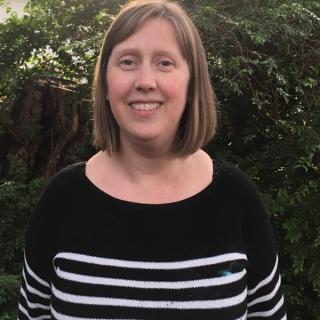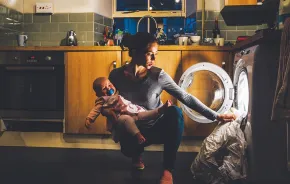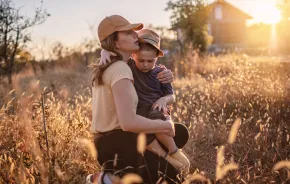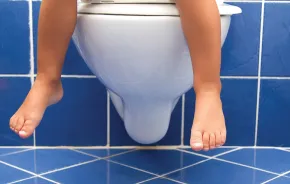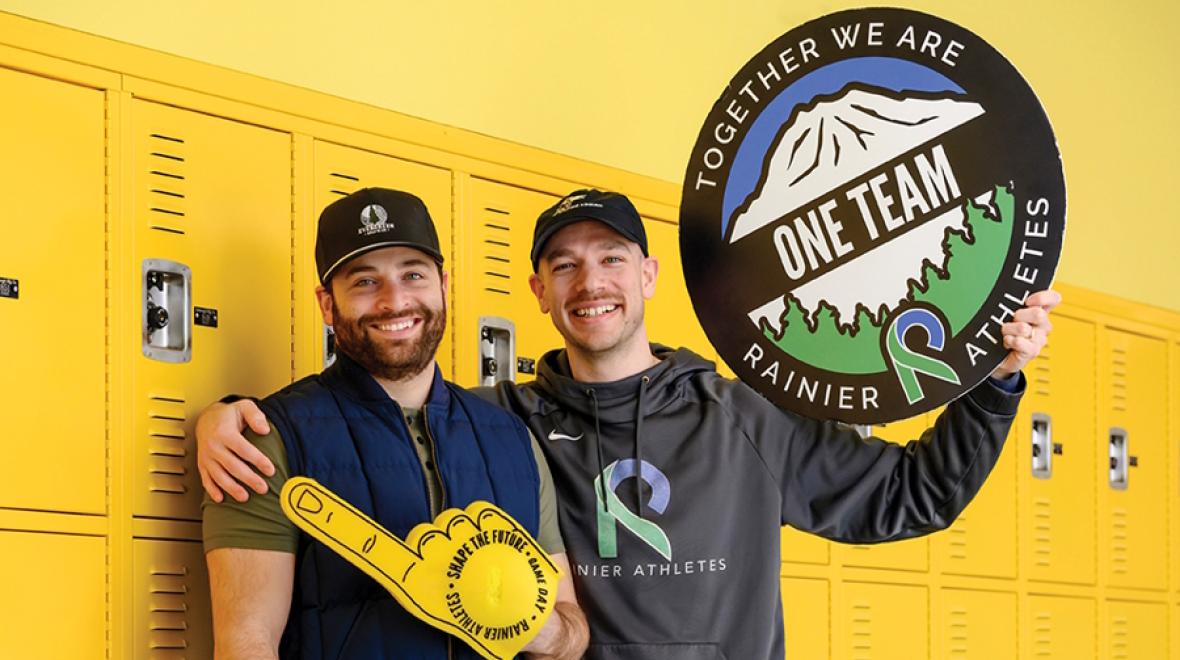
Photo:
Jesse Franklin and Jacob Tobis 2024 superheroes. Photo credit: Will Austin
A similar thread runs through the personal stories of Rainier Athletes executive director and founder Jesse Franklin and director of operations Jacob Tobis. After graduating from high school, both found conventional success. Franklin played college football, then traveled the world teaching English and eventually landed a corporate consulting gig. Tobis took postbaccalaureate premed classes and had his sights set on becoming a family doctor. Yet, as predictable as their futures seemed, life had different plans.
In 2012, a candid conversation with some old friends from high school caused Franklin to change his career trajectory. For Tobis, volunteering to help an Odle Middle School sixth-grader study for and do well on a vocabulary quiz changed his. In fact, it was this volunteer opportunity through Rainier Athletes that connected the two men in the first place.
Launched in 2013, Rainier Athletes is an Eastside nonprofit program that empowers Bellevue youth, through a sports mentorship model, to close the opportunity gap. Working closely with the Bellevue School District and other strategic partners, such as Seattle Seahawks and the Boys & Girls Clubs, the program selects fourth- and fifth-grade students to participate in the program, which provides sponsorship for year-round sports through high school graduation. Of the students selected, 100 percent of them qualify for free or reduced-cost lunch, 98 percent identify as people of color, 70 percent speak a language other than English at home, and 30 percent receive special education services.
But Rainier Athletes is so much more than a sports program. As Frankln explains, “Sports and activities are simply the way in which we engage a young person and their entire core community.” They are “One team.” One of the organization’s three values, this mantra embodies the idea that “together, we are stronger,” says Tobis. “The power of the Rainier Athletes community mentoring model [is that it] authentically connects with the student’s core community of teachers, coaches and family members to build a network of support, so each student feels a deeper sense of belonging, whether they are at home, in the classroom, on the field or throughout the community,” he continues.
Since its first year, Rainier Athletes has expanded from serving three students from one Bellevue school to serving more than 100 students and their families across 11 schools within the district, according to Franklin. That’s impressive, considering that Rainier Athletes commits to each student and their family for the long term — adding up to a minimum of nine years of consistent, ongoing and dedicated support. But, as Franklin points out, that’s what it takes to grow a community.
While Rainier Athletes’ student participants and volunteer mentors see the payoff on the field, they also see it in the classroom, which is one of the program’s main goals. According to Franklin, the “team of over 70 dedicated mentors engage in weekly communication with over 300 educators throughout the district in order to support each educator in forming strong connections with some of their hardest-to-reach students.” The result: Ninety percent of teachers agree that student participation in Rainier Athletes has “directly led to increased performance in classrooms.”
Looking back over the past decade, Franklin takes pride in the organization’s accomplishments. “Rainier Athletes started as a simple idea to cover the costs of sports for kids who couldn’t afford to participate. Today, as a result of this idea, we’ve built a connected community composed of over 1,000 individual stakeholders, including teachers, mentors, students, families, coaches and community partners, who all work together as one team to further our collective mission.”
What book or podcast are you recommending right now?Tobis: I recently finished “Oh Crap! Potty Training” by Jamie Glowacki, and after a grueling long weekend and a painstaking past few months, [am] happy to share that my almost 3-year-old is (sort of) potty trained! The book really had some good tips and framework, and was pretty entertaining. I also recently read “Factfulness” by Hans Rosling, Ola Rosling and Anna Rosling Rönnlund. The authors believe that the world is better than we think, but I appreciated how they presented data, narratives and information, and then encouraged the reader to come to their own conclusions about the world. I also loved the point that things can be getting better and still be really challenging, and doesn’t negate the real struggles of individuals across the world. Franklin: “SmartLess” [podcast]. It makes me laugh and step back from my to-do list. How can parents teach children to repair a broken world?Tobis: I think the key is in the modeling. I have two young kids now and directly see them modeling my actions and behaviors. I think especially modeling and giving space for patience, grace and understanding is key when things feel broken. And then at Rainier Athletes, I’ve seen that leading with genuine interest in the other person, rather than trying to jump to a conclusion or get a specific response, allows for deeper connections and willingness to engage when challenges and hopelessness arise. Franklin: Well, I try to teach my 2.5-year-old that bad guys, monsters and mean trucks just need love like anyone else. That they might be scared, too, when they first see you. The most brave thing to do isn’t to fight or run, but to listen, learn, see them and offer your love. And sometimes a kiss on the nose will turn the “bad guy” into a good guy. So parents need to do the work to unlearn their learnings of us versus them, good and bad, right and wrong; embrace a lifelong learning perspective; and fail in front of your kids and then own it. They don’t need perfect leaders or lessons. We all know those don’t exist. Model what it looks like to embrace our own and others’ imperfections. What daily habit or routine is most important to you?Tobis: I love the daily car rides with my kids, dropping off and picking up from day care. Yes, there are plenty of times where crying and yelling are the entirety of the trip, but then there are some filled with noticing new things in nature, harmonizing a song, or my almost 3-year-old trying to get my 9-month-old to laugh! Franklin: I get up before everyone, even if just for 15 minutes, and try to experience a slow start to the day. Slowly drink a full glass of water. Slowly stretch. Meander. Pause. |




